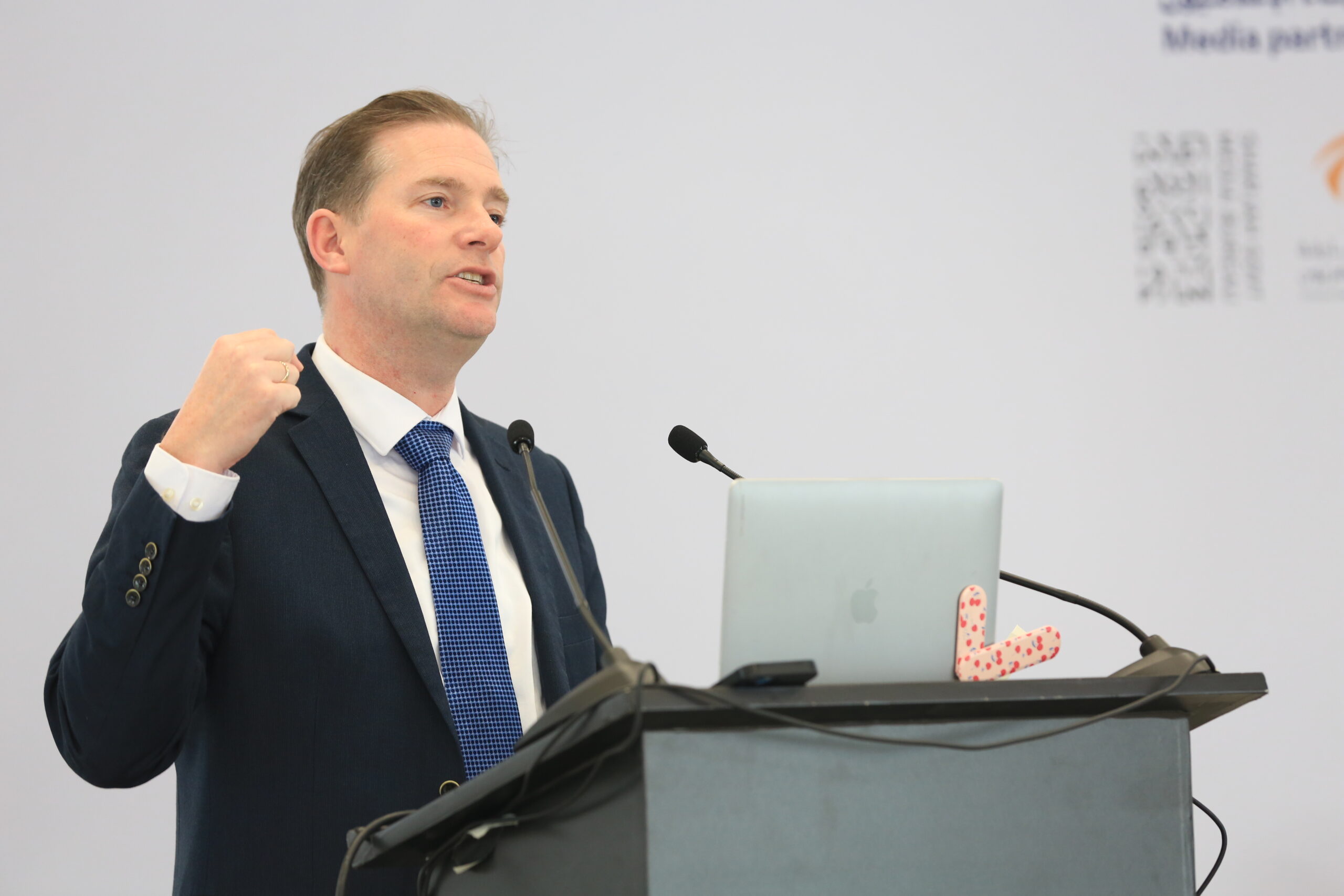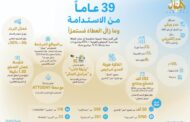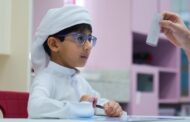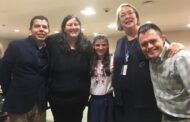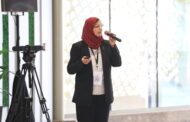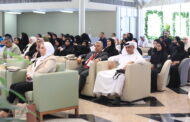If all children learn together in regular school, all children learn to live together in the community.
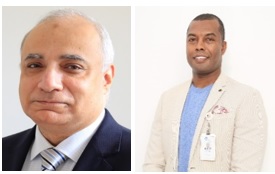
By Mr. Wael Ahmed Allam & Mr. Hicham Med Koutami
wael.allam@schs.sharjah.ae ; hichamkoutami@schs.sharjah.ae
We would like to know you and some of your experiences.
I come from humble beginnings. My parents separated when I was very young. My dad was a truck driver and my mom was on social assistance. I always remember where I come from and why I am involved with social activism. Public education was essential in my development as a citizen. I was impacted greatly knowing that I attended pre-primary daycare with the help of a community donation. I have a special place in my heart to do all I can to help societies most disadvantaged people. When we do, everyone benefits.
I am former Minister of Education (pre-primary, primary, secondary, higher education, adult learning, employment, training, labour, human rights) from 2010-2014 in the Canadian Province of New Brunswick. I was first elected at 23 years old in 1999 and retired from politics in 2018. I obtained a law degree attending university full-time while working full-time in the legislature (2015-2018). I was called to the Bar and became a lawyer in 2019. When I was Minister I passed the Inclusive Education Policy 322 that was internationally recognized. The policy is based on a human rights framework to education within the parameters of the United Nations Convention on the Rights of Persons with Disabilities, Article 24 and general comment #4. I extensively researched the legal framework to address discrimination in education.
I am an advisor with Inclusion International – Catalyst for Inclusive Education, an associate with Inclusive Education Canada, and a legal expert with ARCH Disability Law Centre in Toronto, Canada. I have advocated for the rights of persons with disabilities since before I was elected to public office. I am married to Krista Carr and we have two daughters, Taylor (age 19) and Madison (age 16). Krista is the executive director of Inclusion Canada, a national non-profit organization that advocates for people with intellectual disabilities, developmental delay and autism and their families. We share a passion for working to improve the inclusion of persons with disabilities in all aspects of life.
Tell us about your experience being elected at a young age in Canada , and how did you feel during it?
I actually first put my name forward for public office when I was 19 and still in my second year of University while studying Business Administration. At first, a lot of people laughed at the idea of me running, but soon I gathered a lot of support. I said I wanted to do politics differently, be around not only at election time, but all of the time. I came second but never gave up. I was first elected to the provincial legislature in my second election in 1999 at the age of 23. The truth is it was very hard at first being a young politician. Once I married my wife Krista in 2001, she gave me great support. We always work as a team. I was elected for a total of 5 times, getting as high as 80% of the vote in my district. It was a great experience being a politician, I learned a lot, and gained a lot of knowledge from people about their problems and the challenges within government systems. I am proud that my two brothers both were elected to the legislature as well. Jack, my twin brother, was elected from 2008-2014. We both served together and became the first set of twins in North America to be elected to the same legislature at the same time. My older brother, Jeff, was elected to the provincial legislature in 2014 and continues to be today. He is currently the Minister of Transportation and Infrastructure.
Is this your first visit to UAE & Sharjah?
Attending the Sharjah City Humanitarian Service International Scientific conference on Rare Disease as a disability was actually my third visit to UAE. Two previous visits in 2017 and 2019 were at the invitation of the Regional Center for Education Planning with UNESCO based in Sharjah. This time however was the most extensive visit I had with such a rich experience seeing Sharjah, the university and the safari. SCHS were fabulous hosts. I have travelled to Ireland, Australia, Czech Republic, Switzerland, Paris, and Argentina promoting Inclusive Education but my visit with SCHS was one of the best I have ever had. Thank you SCHS.
What is Inclusive Education?
Inclusive Education is a dynamic, modern concept of teaching to mixed ability and diversity. All children are welcome, regardless of differences and needs (or level of ability) to learn together in the same neighborhood school and as much as possible in the same classroom. Programing and curriculum is adapted in the classroom to meet the diverse needs of the students in the classroom. Students may leave the classroom as needed during the day, depending on their individual needs and education plan. It is based on a human rights framework to inclusive education. It is a philosophy but is also based on good pedagogy. Every child is uniquely special because of who they are. Every child can learn. All children benefit from learning together, with the proper support and coordinated resources. Instead of children being made to go to a specialist location in a segregated based setting, it is the specialists and support teachers in an inclusive, integrated system who are required to travel to neighborhood schools on a rotating basis between schools to provide support as needed to the classroom teacher and students. Most schools in an inclusive structure have at least one full-time inclusive education teacher facilitator. Teachers, administration, and families, along with professionals as needed (OT, SLP, PT, etc) and other government departments (health, social services, public safety), work as a team to support the classroom teacher and students. When inclusion is not working, my position is that it must not be inclusion.
What are your impressions of SCHS after your visits to its departments and branches and your meetings with its work teams?
I am so very impressed with SCHS. With nearly 700 employees SCHS provides extensive services for the community. It is one of the largest disability advocacy and service provider in all of UAE. I am impressed with the level of expertise that exists in the professionals employed with SCHS. This is not just a place to work, it is a family. I am impressed with the leadership and vision of Her Highness Jemeela {please insert proper name/title}… and Director Mona {please insert proper name/title}… The mission of SCHS is to provide support to individuals with disabilities, their families and the community to live as full participants in the community at home, school and at work.
The programs are impressive at SCHS. For instance, the early intervention center is well coordinated with family and community support. The multi-disciplinary team works together to provide intervention as required. I am impressed that families are part of the team and are so welcome at SCHS. SCHS provides early intervention screening for all of Sharjah’s young children. This is impressive.
SCHS continues to work with government offices, schools and workplaces to overcome barriers and stigma for people with disabilities. Even though the law of UAE says business, schools and government cannot discriminate against people with disabilities due to their disability, like restricting access to regular schools, there is much more work to do to reach the goal where everyone is welcome regardless of their disability.
What are your impressions after your participation in the international scientific conference the rare syndrome associated with disability ?
I am impressed how all of the employees at SCHS worked together to pull off a fantastic conference. The conference was well organized and was a great sign of support to have His Highness {please insert proper name/title}… … and the Chancellor {please insert proper name/title}… of the University of Sharjah attend the opening of the conference.
How was your meeting with the families of the integrated students?
I was really happy to present a lecture to the families of children with disabilities at SCHS. I was nervous at first talking to them about inclusive education. I wasn’t sure how the concept and vision would be received. The comments to me afterwards was that I gave a message of hope and inspiration for the families to keep working at getting their children included in regular schools. If all children learn together in regular school, all children learn to live together in the community.
How was the interaction of the teachers during the workshop “ What, why and how of inclusive education “?
I was really happy to present a lecture to the inclusive education unit of SCHS. Professionals at SCHS are very engaged and very well trained. They are committed to inclusive education and to including children with disabilities in regular schools. They asked for more support and training around providing advice and support to regular school teachers in how to include children with complex needs. I left feeling that SCHS has an important role and unmet opportunity in supporting the community to adapt to the needs of children and adults with disabilities. SCHS can be a continuing resource to all of Sharjah’s schools, families and places of work. Ideally, the goal and vision is to have less contained classes and groupings of children based on their diagnosis and disability and more children included in the community. This is beneficial for the children with disabilities but more important this inclusion is beneficial for all children. It is a greater goal for our society to embrace diversity. To do that the schools and places of work have to adjust and adapt to the needs of everyone. The International United Nations human rights framework within the Convention of the Rights of Persons with Disabilities provides the UAE this mandate. This is not easy, but it is possible. Families and teachers, I know in my province of New Brunswick, Canada, who get proper support, training and flexibility to include students with disabilities, very much appreciate and value inclusive education.
What do you recommend to SCHS teachers in the field of the Inclusive Education ?
Keep at it. Don’t give up. I believe SCHS should continue building partnerships with regular schools. It would be wonderful if the department of education mandated that no child can be refused entry into a school based on their disability. This means schools should not be allowed to deny access to school based on an entrance exam. Schools can modify curriculum and that child’s ‘marks’ do not have to be included in the overall ranking of the school. SCHS should be the main service provider to schools, teachers and families in how to plan for and implement inclusive education.
Are there recent trends or new practices in the field of the Inclusive Education that you can refer to?
Oh for sure. There are many universal and new techniques, policies and programs that can assist regular schools in adapting their schools to the needs of all students. Diversity must be celebrated. The success of implementing Inclusive Education starts with Leadership. Leadership and courage at all levels from the top to the regular classroom teacher. Creating a vision, embracing the goal and working in teams to support it is essential.
What are the common challenges between the UAE and Canada in the field of the inclusive Education? And how can it be treated?
There will always be challenges in implementing inclusive education. Usually the challenges result in not having enough understanding of the goal, not having enough support and resources, and not having the best coordination of services to support the student and classroom teachers. It requires a mindset change for everyone. Those in “special” education and those in “regular” schools must change the way we have learned to think about how education and learning is organized. Changing the special and regular systems into one holistic and integrated system takes great effort and commitment. The boxes, It is recognized by research and the United Nations that says there are better ways to group students besides using silo’s and groupings based on ability. When grouping students based on a vision of diversity the overall outcome for society is improved. And overall, and generally, that should be everyone’s goal. I believe SCHS is well positioned to assist the Department of Education and all the schools of Sharjah in reaching the goal of creating an integrated and inclusive school system for the benefit of the entire Emirates of Sharjah, UAE.






